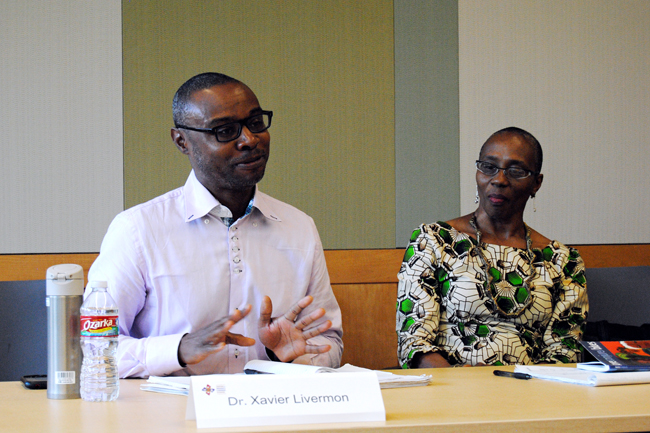Though the existing field of black lesbian literature and analysis is limited, it recently became a little bit bigger with the release of a UT professor’s new publication on black lesbian culture.
Matt Richardson, an associate professor in African and African diaspora studies and women’s and gender studies departments, celebrated the release of a piece 16 years in the making on Monday, when he participated in a discussion with faculty and students about the strenuous process he went through in researching and finding material on black lesbian culture.
Richardson’s book, “The Queer Limit of Black Memory: Black Lesbian Literature and Irresolution,” looks at archives of work dealing with black lesbian culture, a topic for which Richardson said there is not a large collection of work to be referenced in academia. Initially, Richardson was discouraged from pursuing a dissertation on this subject because of the small resource pool, but he stuck with what he wanted to do and chose specific pieces to use in his own publication.
While conducting his research, Richardson spent time in Scotland at the Glasgow Women’s Library, but he was still frustrated with what he found, he said. He then went and identified authors who wrote black lesbian literature and conducted his own interviews with them to get a better grasp of the knowledge at hand.
“That my book would be important for those who come after me, that it would open up space and it would give things they could reference and find useful and helpful intellectually and creatively — that’s what I hope for,” Richardson said. “And that people who aren’t academics can get something from it that they can find books they’ve never heard of.”
According to Patena Key, a women’s and gender studies graduate student, students still struggle, like Richardson did, to find published work to reference for their thesis papers.
“There’s two books that focus exclusively — at least from a theoretical standpoint — on black lesbian literature, and that’s important to me because that’s what my thesis is about,” Key said. “That work is really important to me, especially as a grad student, whereas in my undergrad I tried to write a thesis on a similar topic and it was extremely difficult to find important text from scholars.”
A panel of faculty shared their thoughts about Richardson’s piece at the release Monday, where Omi Osun Joni Jones, an associate professor of African and African diaspora studies, said she felt Richardson’s piece offered a unwavering look at violence perpetrated on black bodies.
“When you have an opportunity to read the book, prepare yourself for the end, where Matt offers a very terrifying litany the black bodies that have been killed, [and] mutilated because too often we are a people born into violence,” she said.












